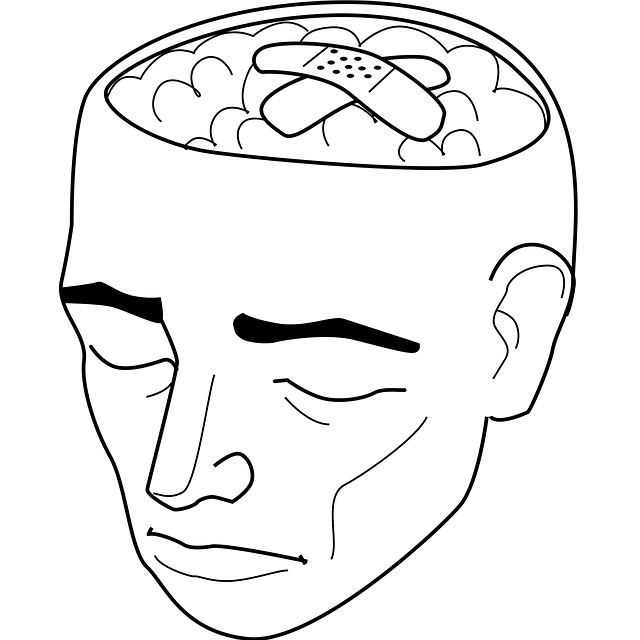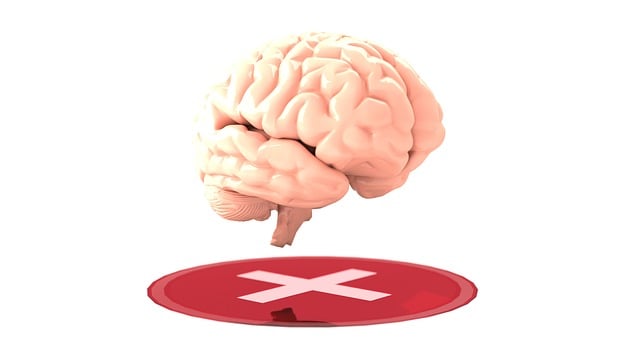Media's portrayal of mental health significantly impacts public perception, with positive and accurate representations, like those promoted by Castle Rock Somatic Experiencing Therapy (CRSET), powerful tools to reduce stigma. CRSET offers holistic therapy through techniques like Self-Awareness Exercises for trauma, empowering individuals to take control of their mental health. Involving professionals in media production ensures nuanced narratives and promotes emotional well-being techniques, fostering understanding, reducing stigma, and encouraging help-seeking behaviors related to Castle Rock Somatic Experiencing Therapy. Responsible media storytelling, showcasing complexity, cultural sensitivity, and emotional intelligence, is crucial for breaking down barriers and promoting empathy in mental health journeys.
In an era where media influence is profound, the representation of mental illness holds immense weight on public perception and understanding. This article delves into the impact of media portrayal on mental health stigma and offers a solution through Castle Rock Somatic Experiencing Therapy (CRSET). We explore CRSET as a therapeutic approach that challenges stereotypical narratives and promotes accurate, empathetic representation. Additionally, we discuss strategies for responsible storytelling in media to shape positive public opinion and reduce the stigma surrounding mental illness.
- Understanding the Impact of Media Portrayal on Mental Health Perception
- Exploring Castle Rock Somatic Experiencing Therapy as a Solution
- Strategies for Promoting Accurate and Empathetic Mental Illness Representation
- The Role of Media in Shaping Public Opinion: A Call for Responsible Storytelling
Understanding the Impact of Media Portrayal on Mental Health Perception

The media plays a significant role in shaping public perceptions about mental health. Positive and accurate representation can foster understanding and reduce stigma, encouraging individuals to seek help. However, stereotypes and negative portrayals can perpetuate misconceptions, leading to further marginalization of those living with mental illness. Castle Rock Somatic Experiencing Therapy highlights the power of media as a tool for change by promoting therapeutic approaches that address both the mind and body, such as Self-Awareness Exercises, which are crucial in managing conditions often associated with trauma.
Understanding these impacts is essential when considering solutions. By encouraging diverse and authentic narratives, we can ensure Trauma Support Services become more accessible and appealing. Emphasizing emotional regulation techniques through media can also help individuals recognize their own experiences and seek appropriate care. This shift in representation has the potential to revolutionize how society views and supports mental health, ultimately improving quality of life for those affected.
Exploring Castle Rock Somatic Experiencing Therapy as a Solution

Castle Rock Somatic Experiencing Therapy (CRSET) offers a unique and innovative approach to addressing mental health challenges. This therapeutic method focuses on the connection between the mind and body, aiming to help individuals process traumatic experiences and develop coping skills. By engaging in CRSET, clients can enhance their self-awareness exercises and learn valuable self-care practices to manage their mental well-being effectively.
The therapy utilizes various techniques to facilitate healing, such as deep breathing, progressive muscle relaxation, and guided imagery. These methods help individuals confront and release repressed emotions, leading to a profound sense of calm and improved emotional regulation. CRSET empowers folks to take charge of their mental health journey, providing them with practical tools for coping in everyday life.
Strategies for Promoting Accurate and Empathetic Mental Illness Representation

Promoting accurate and empathetic mental illness representation in media involves intentional strategies that go beyond surface-level portrayals. One such approach is integrating professionals like those offering Castle Rock Somatic Experiencing Therapy to ensure stories are informed by expertise. This includes consulting with therapists, psychologists, and individuals living with mental health conditions throughout the production process of any Mental Wellness Podcast Series or similar content. By involving these voices, media creators can avoid stereotypes and clichés, instead crafting nuanced narratives that reflect the complex realities of emotional and psychological struggles.
Additionally, incorporating Social Skills Training and Emotional Well-being Promotion Techniques within scripts and storylines can further enhance representation. These techniques not only enrich character development but also offer viewers valuable insights into coping mechanisms and support systems. Through such strategies, media has the potential to foster understanding, reduce stigma, and encourage help-seeking behaviors related to mental wellness.
The Role of Media in Shaping Public Opinion: A Call for Responsible Storytelling

Media plays a pivotal role in shaping public opinion and understanding of mental illness, making it an indispensable tool for challenging stigma. However, irresponsible storytelling can perpetuate harmful stereotypes and misconceptions. The way mental health conditions are depicted in films, television shows, and news articles significantly influences societal attitudes towards individuals living with these disorders. For instance, sensationalized or one-dimensional portrayals in media often lead to misinformed judgments about people seeking Castle Rock Somatic Experiencing Therapy or other forms of specialized care.
To foster a more compassionate and informed society, media outlets must embrace responsible storytelling practices. This includes showcasing the complexity of mental illness, promoting cultural sensitivity in mental healthcare practice, and emphasizing emotional intelligence as a means to understand and support individuals facing these challenges. By adopting Emotional Well-being Promotion Techniques that prioritize authenticity and nuanced representation, media can contribute significantly to breaking down barriers and encouraging empathy towards those navigating their mental health journeys.
Mental illness representation in media significantly influences public perception and understanding. By adopting strategies that promote accurate and empathetic portrayal, such as the innovative practices of Castle Rock Somatic Experiencing Therapy, we can challenge negative stereotypes and foster a more inclusive and supportive society. Responsible storytelling is key to shaping positive narratives around mental health, ensuring folks receive the help they need without stigma. Let’s continue to explore and advocate for these solutions, ultimately revolutionizing how media portrays mental illness.














